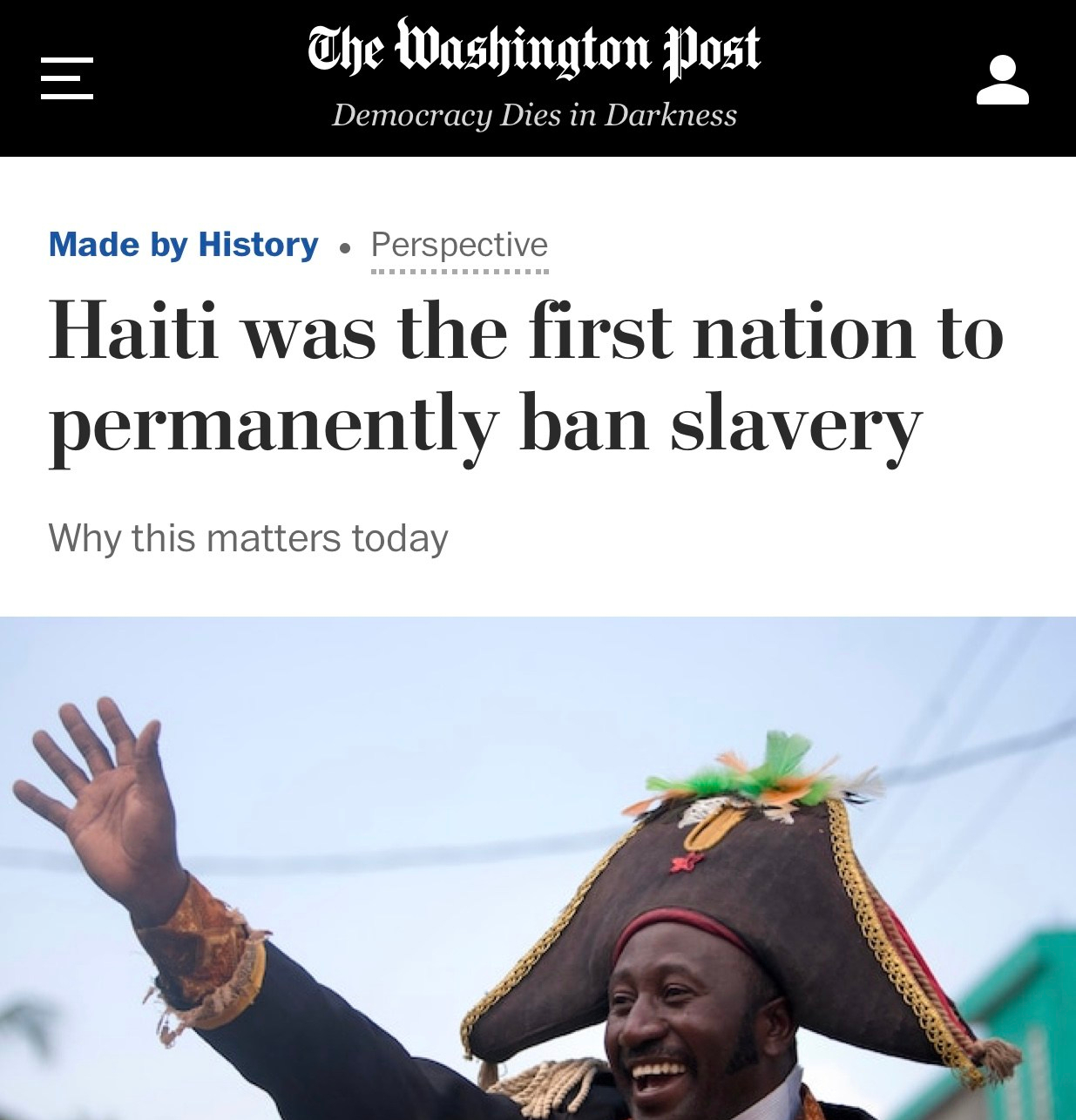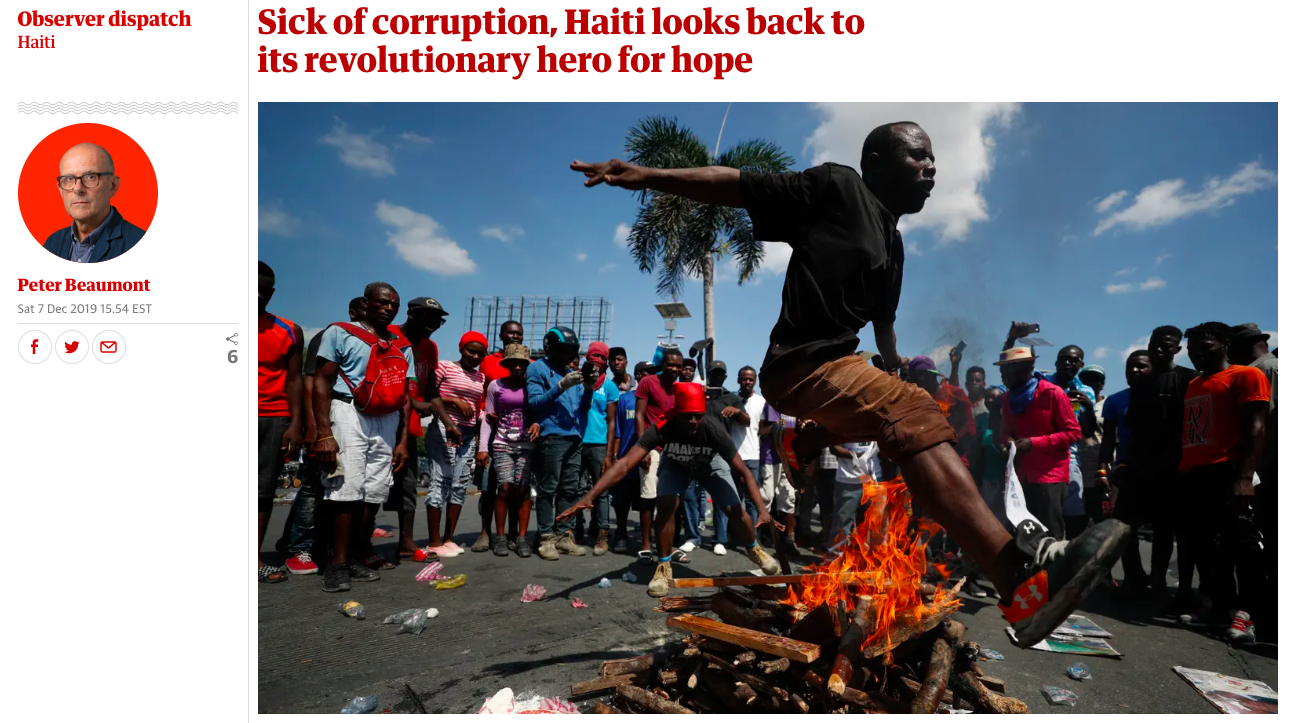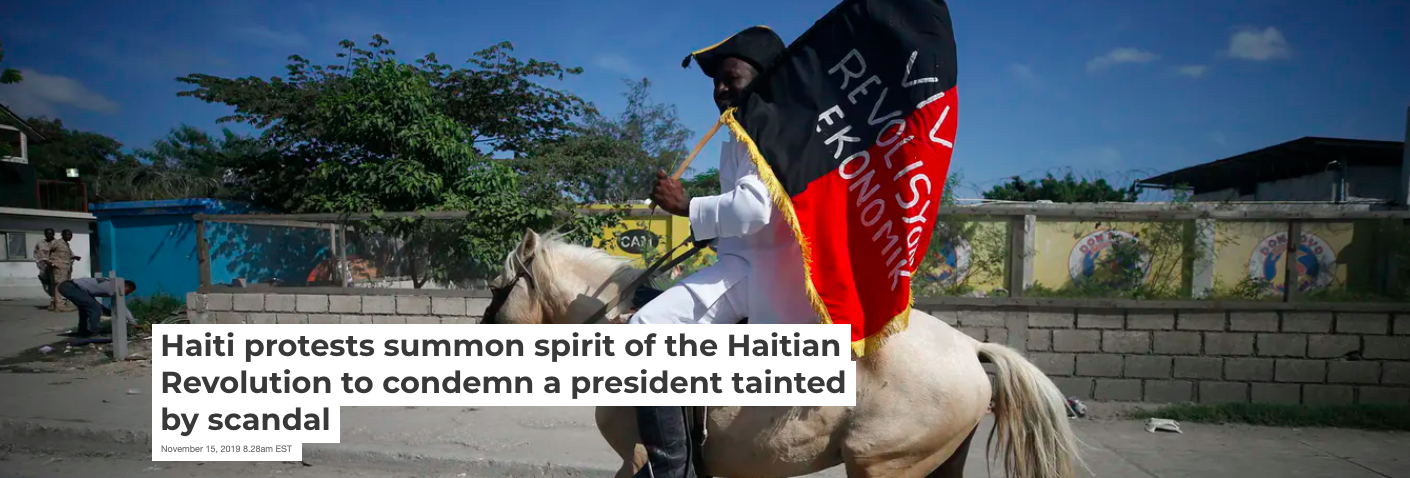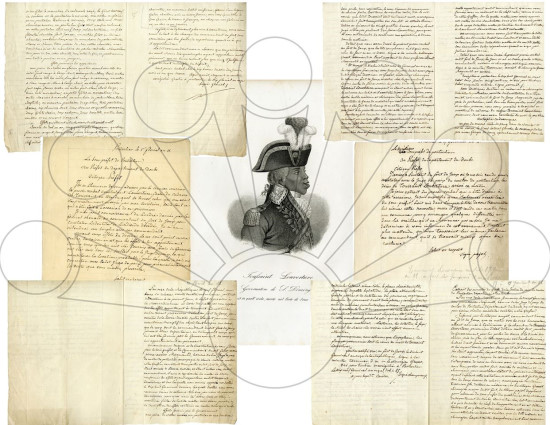Five Myths about the Haitian Revolution, Washington Post
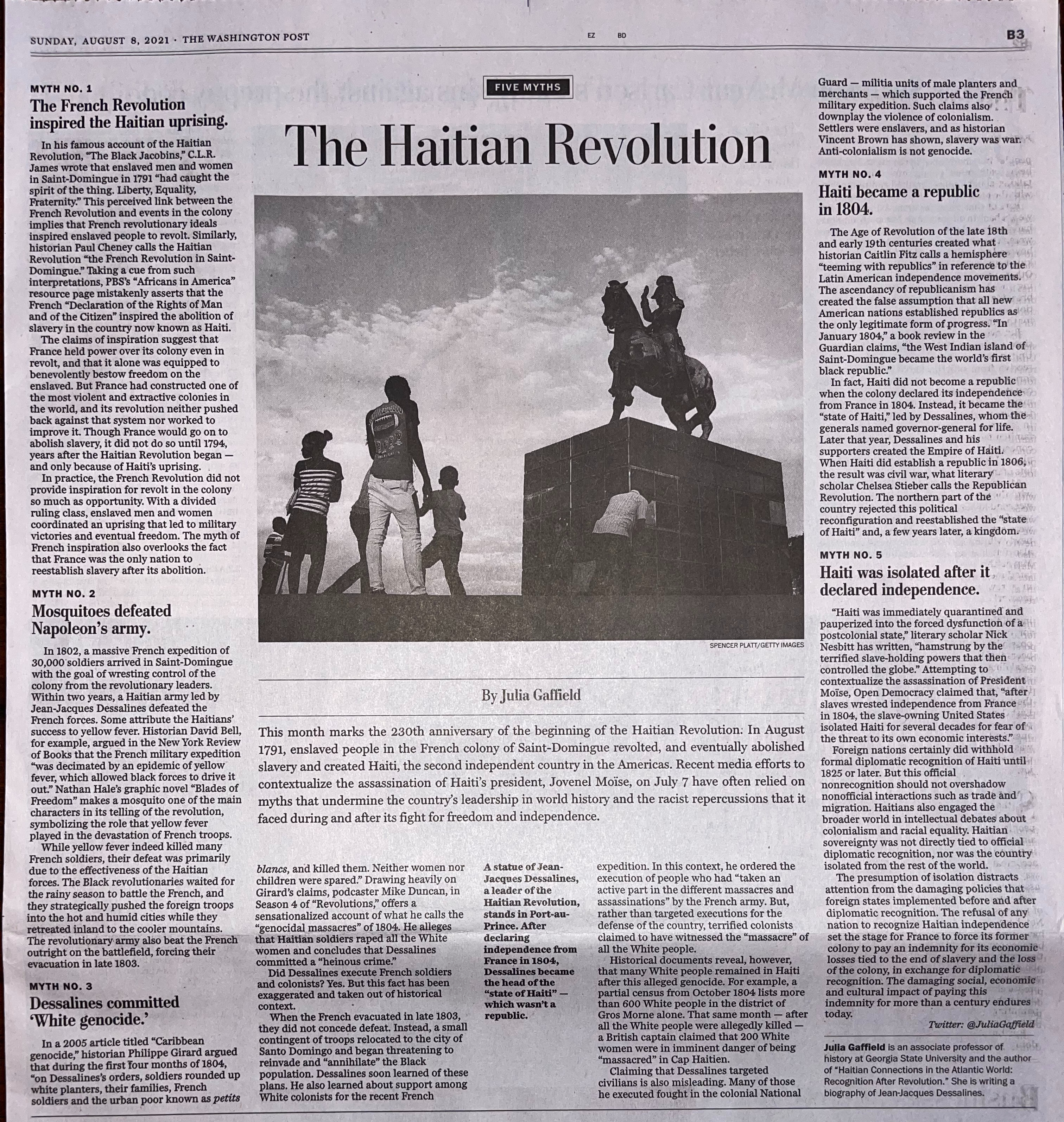
Dessalines est l’un des personnages les plus importants de l’histoire du monde, Ayibopost
Jean-Jacques Dessalines avait promis une guerre éternelle au colonialism, Ayibopost
Haïti a été la première nation à interdire définitivement l’esclavage, Le Nouvelliste
Haiti was the first nation to permanently ban slavery, in Washington Post (Made by History)
“Julia Gaffield on Julius S. Scott’s The Common Wind,” an AHR Interview with Adam McNeil
HAITIAN LEGACIES: In the June Issue of the American Historical Review, in AHA Perspectives
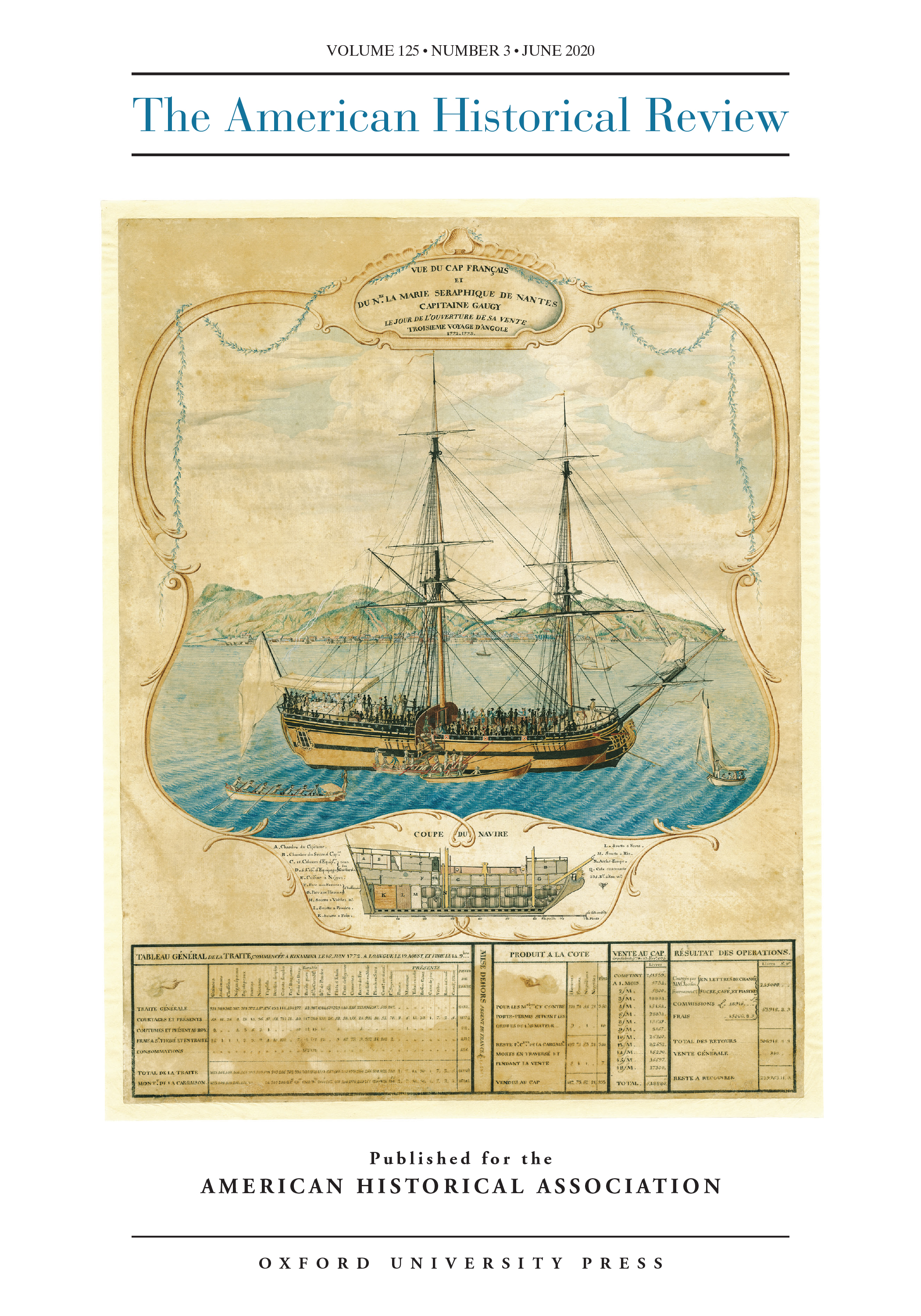 “…Julia Gaffield (Georgia State Univ.) considers the new republic’s emerging role on the diplomatic stage. Her article, “The Racialization of International Law after the Haitian Revolution: The Holy See and National Sovereignty,” explores how the Haitian state shaped international definitions of sovereignty and national legitimacy after its Declaration of Independence in 1804. Haiti’s 19th century was not a period of isolation and decline, she reminds us; instead, its first six decades were globally connected as the country’s leaders challenged their postcolonial inequality with diplomacy and state formation, forcing the Atlantic powers to redefine the boundaries of international relations. Gaffield emphasizes Haiti’s decades-long negotiations with the Catholic Church, illuminating the racialization of the global hierarchy within the 19th-century “family of nations.” Even as the Haitian Republic cultivated internal policies and practices that rejected predominant racist assumptions, these same discriminatory ideologies became increasingly explicit in an international legal system in which Haiti sought to demonstrate its sovereign status.”
“…Julia Gaffield (Georgia State Univ.) considers the new republic’s emerging role on the diplomatic stage. Her article, “The Racialization of International Law after the Haitian Revolution: The Holy See and National Sovereignty,” explores how the Haitian state shaped international definitions of sovereignty and national legitimacy after its Declaration of Independence in 1804. Haiti’s 19th century was not a period of isolation and decline, she reminds us; instead, its first six decades were globally connected as the country’s leaders challenged their postcolonial inequality with diplomacy and state formation, forcing the Atlantic powers to redefine the boundaries of international relations. Gaffield emphasizes Haiti’s decades-long negotiations with the Catholic Church, illuminating the racialization of the global hierarchy within the 19th-century “family of nations.” Even as the Haitian Republic cultivated internal policies and practices that rejected predominant racist assumptions, these same discriminatory ideologies became increasingly explicit in an international legal system in which Haiti sought to demonstrate its sovereign status.”
Julia Gaffield Receives 2020 Fellowship from the Luce/ACLS Program in Religion, Journalism & International Affairs
“The Abandoned Faithful” argues that the Haitian state shaped international definitions of sovereignty and national legitimacy after the Declaration of Independence in 1804. Rather than seeing Haiti’s nineteenth century as a period of isolation and decline, its first six decades were globally connected because the country’s leaders challenged their post-colonial inequality with diplomacy and state-formation. Read More –>
Comment une copie originale de l’acte de l’indépendance fut retrouvé après le séisme, in Ayibopost
Sick of corruption, Haiti looks back to its revolutionary hero for hope, in The Guardian
Haiti protests summon spirit of the Haitian Revolution to condemn a president tainted by scandal, in The Conversation
The MUPANAH acquires 4 rare manuscripts on Toussaint Louverture, in Haiti Libre
Julia Gaffield, Jennifer Palmer, and Patrick Tardieu receive Omohundro Institute Lapidus Digital Collections Fellowship, in Le Nouvelliste (Haiti)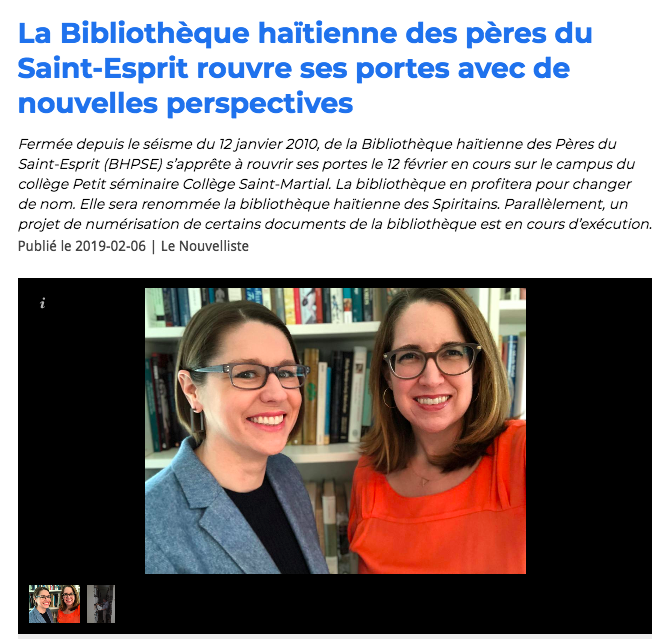
Julia Gaffield featured in a Member Spotlight on AHA Today from the American Historical Association
Describe your career path. What led you to where you are today? I enrolled at the University of Toronto in 2002 in the phys ed program and I played on the basketball team; I wanted to be a physical therapist. I quickly realized that I had no interest in anatomy, but I was fascinated by my history elective because it focused on analyzing primary sources. I switched majors. Read More –>
Julia Gaffield talks with Le Nouvelliste (Haiti) about her research
Julia Gaffield Receives 2018 ACLS Fellowship
Julia Gaffield, assistant professor of history, has won the American Council of Learned Societies (ACLS) Fellowship for her project titled, The Abandoned Faithful: Sovereignty, Diplomacy, and Religious Dominion in the Aftermath of the Haitian Revolution. Read More–>
Julia Gaffield interviewed by Reena Goldthree, for Black Perspectives, The African American Intellectual History Society Blog, October 10, 2016.
Reena Goldthree (RG): Haitian Connections in the Atlantic World chronicles how Haitian officials constructed diplomatic, commercial, and military ties with foreign governments and merchants in the early nineteenth century. Your book joins a remarkably rich body of scholarship on the Haitian Revolution and on Haiti’s place in the Atlantic World. Read More–>
Finding the Declaration of Independence
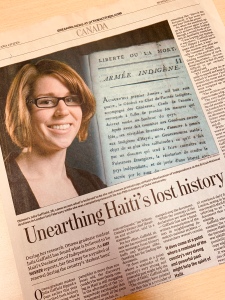 Damien Cave, “Haiti’s Founding Document Found in London,” The New York Times, 1 April 2010.
Damien Cave, “Haiti’s Founding Document Found in London,” The New York Times, 1 April 2010.
Siri Agrell, “Grad student uncovers Haiti’s Declaration of Independence,” The Globe and Mail, 1 April 2010.
“Rediscovering Haiti’s Declaration of Independence,” Duke University.
The Rachel Maddow Show, April 1, 2010
Interview with Marco Werman on PRI’s “The World” from BBC, PRI, and WGBH, 1 April 2010.
Interview with Carol Off and Barbara Budd on “As it Happens” on CBC Radio 1, 1 April 2010, (part one).
Interview with Frank Stasio, “Discovering Haiti’s Declaration of Independence,” The State of Things, North Carolina Public Radio. August 2010.


